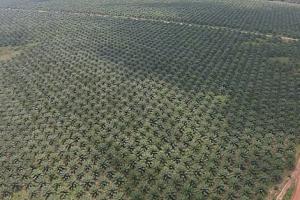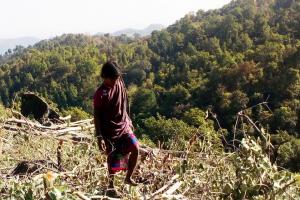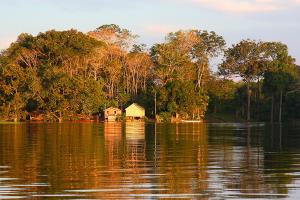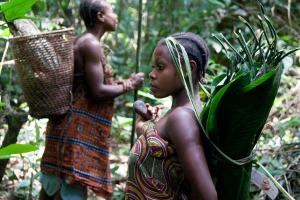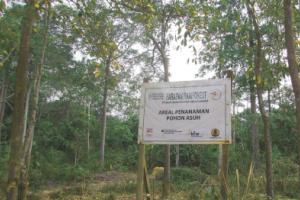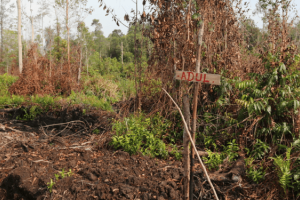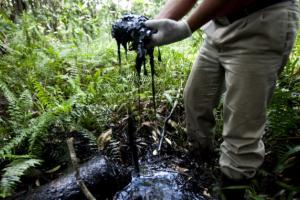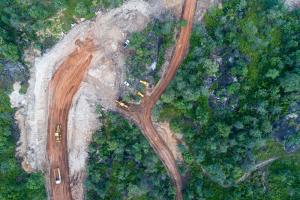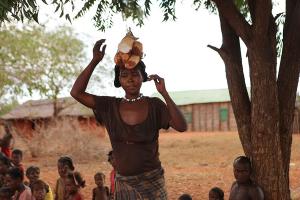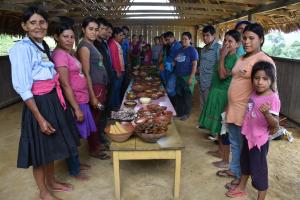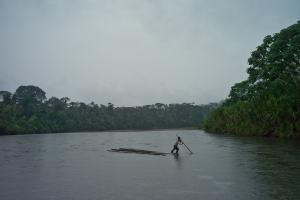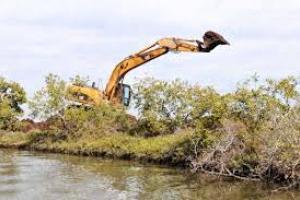Pricing Nature
There is a long history of putting a price on parts of nature. The centuries-old corporate rush for prized timber and land has led to the loss of forests on a large scale and the violation of communities’ rights. So-called "ecosystem services," such as the role that forests play in ecosystems, are a new way of monetizing and trading in nature. The result is greater dispossession of forest-dependent communities and ongoing corporate destruction of community territories.
Despite the various tactics that try to hide the underlying harm and violence behind large scale tree plantations, each year, communities and movements raise up on September 21st to give visibility to their struggles and to denounce the detrimental impacts tree plantations have on their lives and territories.
Funds from the Compensatory Afforestation scheme have been allocated for Covid-19 relief measures. The scheme has funded plantations that invade community land and has led to illegal evictions where “Protected Areas” have been declared. This has not stopped during the lockdown.
The environmental, climatic and social crisis has been a reality for many for a long time. Yet, rather than acknowledging their contribution to this crisis, corporations and allies use the pandemic to amplify their push to expand Protected Areas, presenting it as a "global solution".
The conservation industry’s plan to double the size of Protected Areas (PAs) is supposed to be the solution to biodiversity loss, climate change, and now even COVID-19! Although PAs will solve none of these, if the conservation industry keeps repeating a big lie, people will eventually come to believe it.
Back in 2004, conservation NGOs and the Indonesian Ministry of Forestry pioneered with a model called Ecosystem Restoration Concessions. This article takes a closer look at this model in the context of new and old threats to forests, and the global push for “forest restoration”. (Available in Indonesian).
Oil multinational Shell claims that it is possible that consumers drive “carbon neutral”, simply by paying extra for offsetting their emissions - planting trees or investing in existing forest areas elsewhere. But what is happening in those areas elsewhere? (Available in Indonesian).
The UN and conservation industry discourse and propaganda over REDD+ changed to a new forest conservation fad at the UN climate negotiations in December: Nature-Based-Solutions. Another false solution that distracts from the urgent task to keep fossil fuels in the ground.
An oxymoron describes "a statement that seems to say two opposite things." The World Bank has a lot of experience with oxymoronic initiatives.
Australian company Base Resources was allowed to destroy the Mikea Forest as long as it established an offset project, which, in turn, would impose far-reaching restrictions on communities to access their land and forests.
The government claims that small-scale agriculture is responsible for deforestation. But this claim ignores government policies that drive land-use changes and destructive markets as well as the exclusion of indigenous peoples through the creation of reserves.
REDD+ has shown to be a big failure for the climate, the forests and forest peoples, but many international agencies and governments continue to support it. This article takes a look at its inability to halt deforestation and the fundamental flaws of its main initiatives.
Blue Carbon (or Blue REDD+) appeared as a new carbon offset scheme between emissions and carbon absorption in coastal territories. However, organizations in Indonesia warn that the initiative is a strategy to change the coastal and marine territories into tradable assets .
